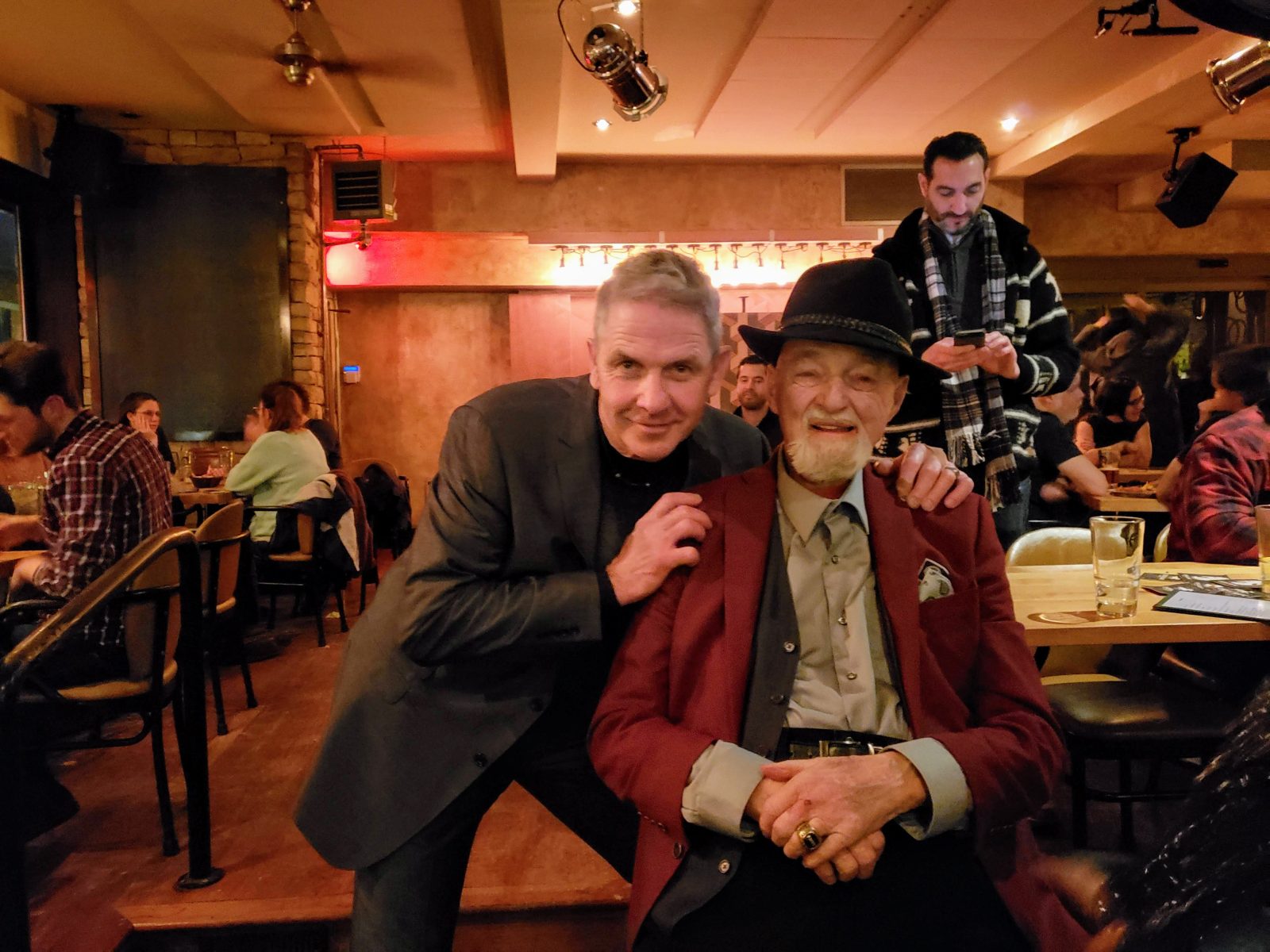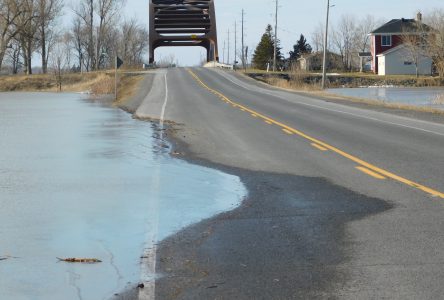“I believed there was a story behind the lives of these wrestlers,” said Rollins during an interview about Les derniers vilains the movie that he co-wrote and produced.
Maurice “Mad Dog” Vachon and Paul “The Butcher” Vachon are the best known, and most famous, members of Canada’s Vachon family of professional wrestlers. Along with their sister, Diane, and Paul’s adopted daughter, Luna, the Vachons contributed their own share of legendary exploits to the history of professional wrestling.
Raised in Québec’s Eastern Townships region, both Maurice and Paul Vachon got their start in wrestling in amateur competition and reaped honours with their skills and their strengths.
Maurice was a member of the Canadian wrestling team at the 1948 Olympics in London, where he finished seventh in the middleweight freestyle competition. Two years later he won the gold medal at the 1950 Games of the British Empire, the precursor to the Commonwealth Games. Paul Vachon was a silver medallist in the 1957 Canadian Amateur Wrestling Championships.
Born to be bad
Both of the Vachon brothers entered professional wrestling with the same goal in mind: to be the best they could be and beat everyone they faced. For the Vachons, being the best in wrestling meant being the best bad guy wrestlers of all.
Their nicknames evolved from their individual aggressive fighting style. They became villains but they were villains that fans could respect even as they booed and hissed whenever Mad Dog or the Butcher climbed into the ring.
When they were not beating up their opponents in the ring, the Vachon brothers were active in promoting professional wrestling in their home province. They were part of the heart and soul behind Le Grand Prix Wrestling televised sports event out of Montréal.
“It was huge,” Rollins said, regarding Grand Prix Wrestling. “It had a short life but in its day, after six months on air, it had higher ratings in Québec than Hockey Night in Canada. They introduced André the Giant to the world, and they had a lot of big name wrestlers appear on the air.”
Although they both played villains in the ring, Rollins recalled one observation that Mad Dog Vachon made about his life in wrestling.
“I tried my whole career to be hated,” Maurice Vachon said during an interview, “and in the end I was loved.”
“He was very well-loved in Québec,” Rollins said.
After a wrestling career that spanned 57 years, Maurice Vachon spent 1986 on a year-long farewell tour of venues, large and small, throughout Canada. These last bouts saw Vachon in a different light, facing down opponents younger and stronger than him, backed up against the ropes and almost on the verge of losing the fight until the Mad Dog rallies at the last moment to win the battle and finish each night as the hero to a cheering crowd.
The movie
Rollins, who lives in one of the rural areas of Prescott County, was born in Montréal and knew the Vachon family when he was a child. He used to play with Luna, Paul Vachon’s daughter, and Paul once took young Rollins to see one of the Grand Prix Wrestling events.
After working as an actor in Canada’s television and film industry, Rollins focused his creative efforts in 2001 on screenwriting and the production side of film. Then five years ago, he got a chance to sit down with Paul Vachon and talk to him about getting the rights and permission to do a movie about him and his brother and other members of the Vachon wrestling family. Paul Vachon had long since retired from wrestling but was still part of that sports entertainment world, having written four books about his life and experiences as a wrestler and about his brother, Maurice.
The end result of the talk between Rollins and Paul Vachon became Les derniers vilains, a documentary about the life and the legend of Mad Dog and the Butcher, drawn from the memories and anecdotes of Paul Vachon, plus Rollins’ own research on the Vachon family.
The movie debuted September 2019 at the Québec City Film Festival where it won the Prix Jury cinéphile for best first film. The movie has gone on to earn three Prix Iris nominations at the 22nd Québec Cinéman Awards in 2020 for best documentary film, best cinematography in a documentary, and best editing in a documentary.
Now Rollins, for his work on Les derniers vilains, has received a nomination Prix Gémeaux from l’Académie canadienne du cinema et de la television, the French-Canadian film industry’s equivalent of an Oscars, in the category of best producer of a documentary program or series, biography, or profile.
“It feels great,” Rollins said, regarding his nomination, though he noted that his main focus is not on the upcoming final awards announcement but on his current projects.
One is a movie with an environmental theme, while the other is a sports-related mini-series. Both are still in the early stages of development so he is reticent about divulging more details. What matters is doing what he loves to do, which is making movies.
“I always think that there is a story to be told in everything,” he said. “I was once told that making movie is like trying to wrestle an elephant. It may seem impossible, but if you never quit, it can happen. That’s what I say to young people. If you have a great idea and a great passion, then never quit.”



